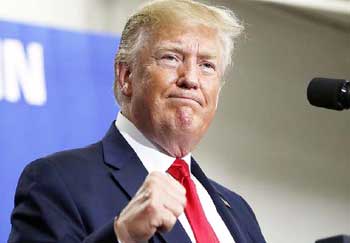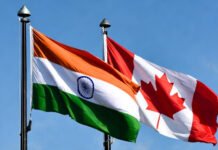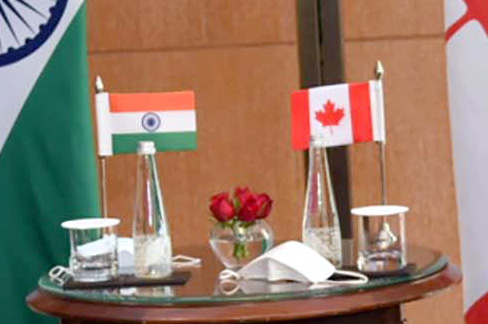In recent developments, several Hindu organizations across America have mobilized in opposition to the Democratic think tank, Indian American Impact. Allegations have surfaced regarding the think tank’s purported inclusion of individuals who hold anti-Indian American sentiments as speakers and guests at its annual conference.
The Allegations
The controversy surrounds the two-day annual conference titled ‘Decisions Decide,’ organized by Indian American Impact. Hindu organizations have expressed discontent, particularly towards two panelists slated to participate in the event. Among them are Safa Ahmed of the Indian American Muslim Council and Rhea Chakraborty of Hindus for Human Rights.
Accusations of Xenophobia and Dual Loyalty
Hindu organizations assert that the inclusion of individuals critical of Indian American politicians and elected officials reflects a bias against the Indian American community. Moreover, they allege that Indian Americans are unjustly labeled as xenophobic and accused of harboring dual loyalty.
Response from Hindu Leaders
Tahir Aslam Gora, President of Progressive Muslims of Canada, has denounced the think tank’s actions, stating, “It is shocking to see that Impact’s Decisions Decide conference is tarnishing the image of India and trying to show that the current government of India discriminates against Muslims. Whereas the present government is working for the welfare of Muslims in India.”
Indian American Impact: A Leading Democratic Think Tank
Indian American Impact has garnered significant influence within the Indian American community in recent years, positioning itself as one of the most influential Democratic think tanks. Co-founded by renowned Indian American, Deepak Raj, the organization boasts a substantial following and has attracted attention for its political initiatives.
Hindu Organizations’ Statement
In response to the controversy, Hindu organizations issued a statement condemning Indian American Impact’s decision to invite individuals openly critical of Indian American candidates and officials. Rajeev Pandit, a board member of a Hindu American organization, expressed disappointment, stating, “Inviting people who are openly criticizing Indian American candidates and elected officials to the conference is extremely disappointing.”
Conclusion
The rift between Indian American Impact and Hindu organizations underscores broader tensions within the Indian American community regarding representation and political advocacy. As the debate continues, the implications of these developments on the relationship between Indian Americans and Democratic institutions remain to be seen.
In light of these events, stakeholders within the Indian American community must engage in constructive dialogue to address concerns and ensure that all voices are heard in the pursuit of meaningful political engagement and representation.















